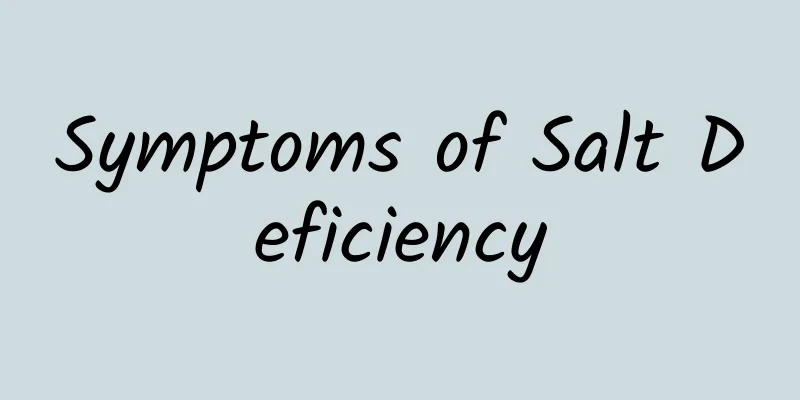Symptoms of Salt Deficiency

|
The main reason why various organs and nervous systems in the human body can function normally is that they need various trace elements to maintain. Therefore, people need to eat every day. In addition to replenishing daily energy needs, the most important thing is to get some nutrients you need from food to help the body complete its metabolic function. It can be seen that the human body cannot function without anything. We advocate that our daily diet should be light, mainly because excessive consumption of salt will cause a certain burden on the human heart. However, if the amount of salt consumed is not enough, other problems will arise. The main component of salt is sodium. When the human body lacks sodium, the body will feel dizzy and weak, and have symptoms such as loss of appetite, accelerated heart rate, weak pulse, muscle cramps, and headaches. Long-term sodium deficiency can lead to heart disease and hyponatremia syndrome. The main symptoms of salt deficiency include fatigue, dizziness, fainting when standing upright, normal or increased urine volume, low urine specific gravity, and orthostatic hypotension in mild cases; moderate cases in addition to the above symptoms have decreased skin elasticity, poor diet, nausea and vomiting, decreased urine volume, still low specific gravity, apathetic expression, and a drop in blood pressure to below 12kPa; severe cases in addition to the aggravation of the above symptoms have shock, coma, and oliguria. In addition to salt, there are many other sources of sodium that also contain a lot of salt, but you can't taste it, such as vegetables (winter melon, tomato, pumpkin, cucumber, radish, spinach, cabbage, cabbage, rapeseed, celery, lotus root, onion, eggplant, potato), fruits (apples, pears, bananas, peaches, strawberries, plums, plums, persimmons, grapes, citrus, grapefruit, lemon), beans, mushrooms, bamboo shoots, nuts (almonds, chestnuts, coconuts), tea, coffee, wine, etc. are all alkaline foods, rich in potassium, sodium, calcium, magnesium and other metal elements, especially kelp and sweet potato, which are strong alkaline foods. If your body is deficient in sodium, it is best to supplement it through food. Salt is rich in sodium, which is involved in the body's metabolism, so the human body cannot lack sodium. Once lacking in sodium, people are more likely to experience dizziness, poor appetite, abnormal urine, etc. However, excessive sodium intake can easily put a burden on the heart, so people's daily salt intake should be controlled at about 3 grams. |
Recommend
Is proteinuria in nephrotic syndrome serious? what to do?
Nephrotic syndrome is a common disease in life. T...
Which department should I go to for hernia? What are the symptoms of a hernia?
Umbilical cord hernia is when part of the human bo...
What foods are better for frequent urination?
Frequent urination is a common symptom of the uri...
Why does my chest suddenly feel tight?
Relevant data show that the probability of suffer...
Diabetes in Traditional Chinese Medicine
Diabetes mellitus is a relatively difficult disea...
How big is the left adnexal cyst that requires surgery?
In general, the clinical dividing line of adnexal...
What to do if you have low blood pressure
In today's society, people often do some phys...
What medicine is most effective for bloating?
Stomach bloating is a problem we often encounter ...
What are the effects of drinking Solanum nigrum soaked in water?
Solanum nigrum is a natural woody plant. Its ripe...
What kind of tea is good for lowering blood sugar?
Patients with high blood sugar are very common in...
What causes hernia? How to treat hernia?
According to statistics, 20 million people in my ...
Can rhinitis in children cause fever?
Children are also at risk of developing rhinitis,...
How to relieve finger cramps
Cramps refer to a sudden change that occurs after...
Girl's back spine protrusion
Many girls show off their graceful and slender fi...
14 weeks pregnant yellow vaginal discharge
When people are healthy, women will feel somethin...









